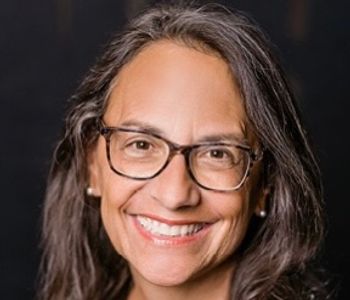
Getting hospitals and medical boards to drop invasive questions on mental health
Many doctors don’t get help because they’re worried about career damage. The Dr. Lorna Breen Heroes Foundation is pushing boards and health systems to change their policies.
Many doctors who are struggling with depression, anxiety and even suicidal thoughts don’t seek help for a profoundly tragic reason.
They are worried they will be asked about it on a licensure questionnaire. And they are worried that if they admit they’re getting help, they could suffer lasting career damage, says J. Corey Feist, founder and CEO of the
Dr. Lorna Breen, an emergency physician in New York City, died by suicide in the early days of the COVID-19 pandemic. In her memory, the foundation has worked to improve the mental health of healthcare workers. The foundation has worked
“We've learned so much since we started this work,” Feist says. “And one of the things that we've learned is that the number one driver of suicide of health workers, is their concern around these overly invasive questions that appear on all of these applications they complete.”
Feist is the former CEO of the University of Virginia Physicians Group. His wife, Jennifer, is the foundation’s co-founder and chair of the board, and the sister of Dr. Breen.
In an interview with Chief Healthcare Executive®, Feist discusses the efforts to change state medical board policies, working with health systems to revise their own applications, and how healthcare leaders can be doing more to take care of their doctors, nurses and other workers.
(See part of our conversation in this video. The story continues below.)
Success with state boards
The Physicians Foundation released a recent
A Medscape survey found
The Lorna Breen Foundation has been seeing success in its efforts to coax state medical boards into changing their questions about mental health on licensure applications. This month, Ohio became the 26th state to remove questions about being treated for mental health issues in the past. Nine states have revised their applications this year.
“It is really remarkable to go from basically 17 states when we started this work about 18 months ago to now have the majority of states,” Feist says.
He expects the number to keep growing. Several other state medical boards are looking at their applications, he says.
Seeing that success “reinforces we're on the right path,” Feist says.
While they have focused on medical boards and licensure for physicians, Feists says states need to address credentialing applications for nurses. He says nurse licensure reforms have been “lagging.”
“We need to get the nursing licensing boards on the same page and get them through this process,” Feist adds. “But we know it's achievable because it's happened so quickly.”
Changing hospital policies
The foundation has been working with hospitals and health systems to take another look at their applications, and is seeing progress on that front.
A dozen systems, including Bon Secours Mercy Health, Centra Health, Children’s Hospital of the Kings Daughters, Henry Ford Health, Inova Health System, Northwell Health, and others have revised their applications. They have been recognized by the foundation as “WellBeing First Champions” for changing questions on all their applications. More than 20 other systems are in the process of making those changes, the foundation says.
Health systems have been open to working with the foundation on their applications.
“Candidly, I don't think many of them have looked at their questions in a long time,” Feist says. “So by and large, what we're doing is we're assuming good intent with organizations to say, ‘Hey, when was the last time you took a look at these questions? Why don't you take a look at them and let us help you?’ And the receptivity has been overwhelming.”
While medical boards typically take more time to revise their applications, health systems can make changes much more quickly, Feist says.
“The receptivity by the hospital workforce is frankly, even faster in many cases,” Feist says. “We gave feedback to a large hospital system on a Friday afternoon and everything had been changed by that Monday morning.”
As health systems begin to make those changes to their job applications, it’s important for organizations to send the message to their workers that they should get help if they need it, and they don’t have to fear damaging their careers.
When the foundation recognizes its champions, it also gives hospitals a communications toolkit to share the message within their system and with their communities.
“We know we need to surround the healthcare workers with this message from all aspects, whether that be the onboarding process in a new organization, or just the ongoing providers who are not going through a formal process of hiring,” Feist says. “We just need to make sure everybody knows about it.”
Helping the caregivers
The foundation has been working with hospitals and health systems on other steps to help their clinicians. The foundation has a program designed to help hospitals and health systems: “ALL IN: Caring for Caregivers.”
The program aims to help organizations remove barriers to mental health access, and to understand operational challenges that are hurting the well-being of their employees.
“One of the things that you hear from hospital leaders all the time is, ‘I don't have money anymore that I used to do for discretionary spending.’ Well, first of all, I can't think of any more important use of your own resources, then to take care of your own, so they don't leave the organization,” Feist says.
Even if hospitals can’t commit additional resources, they can make changes that don’t require new investments, he says.
Doctors have cited administrative burdens, including dealing with electronic medical records, as a leading cause of burnout. Health systems can examine their electronic medical records to get insights on how much time clinicians are spending on documentation and look at ways to be more efficient.
Hospitals can also utilize their own quality and patient safety committees. As they look at improving processes to improve patient safety, they can also look at the workload on clinicians as they make changes, Feist says.
“That's where organizations can really use their existing infrastructure to do this work and change the fabric of how we are delivering care,” Feist says.
Younger workers and medical students are much more comfortable with the idea of taking care of their mental health. Feist says healthcare institutions, from medical schools to hospital systems, should not diminish that sentiment or send a message that it’s a sign of weakness. They should stress the importance of getting help. Some hospital leaders “need to mature and evolve with this conversation,” Feist says.
Leaders should be mindful of the toll of the COVID-19 pandemic on their clinicians. Many doctors and nurses have seen a great deal of death in the past few years, more than some seasoned clinicians would have typically seen in their careers, Feist says.
Healthcare leaders must recognize that many of their workers are struggling.
“There's 50% of the workforce that doesn't feel valued and supported in healthcare right now,” Feist says. “The workforce needs to see a visible commitment by healthcare leaders to their well-being as part of feeling valued and supported.”
Getting help






























